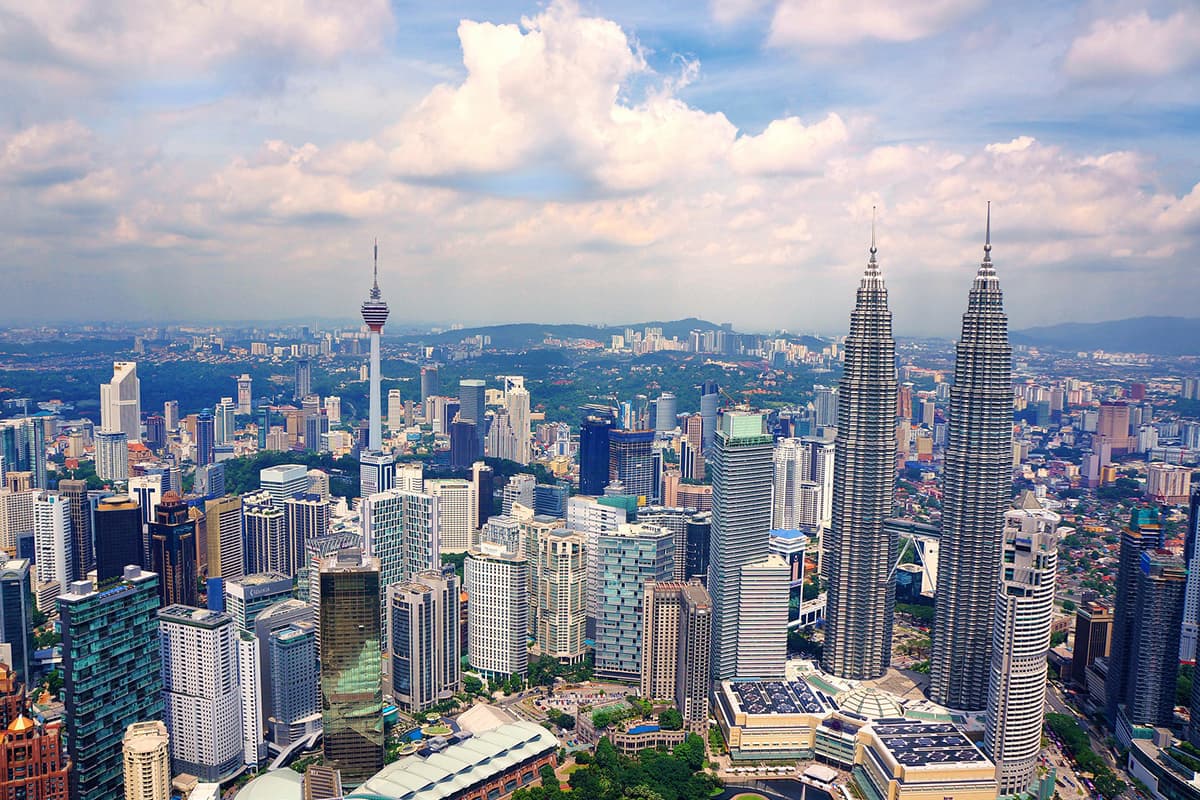
This article first appeared in City & Country, The Edge Malaysia Weekly on February 15, 2021 - February 21, 2021
In the near term, the trend of working from home amid movement restrictions to contain the spread of Covid-19 will further depress the office market in the country, particularly in the Klang Valley where there is growing imbalance between supply and demand, says Knight Frank Malaysia.
“The tenant-led office market in the Klang Valley is expected to remain relatively soft with office landlords reviewing their current and new occupancy strategies as they remain sensitive to the occupancy and operational cost of their buildings,” says Teh Young Khean, executive director of corporate service at Knight Frank Malaysia.
Presenting The Edge/Knight Frank Kuala Lumpur and Selangor Office Monitor 4Q2020, he adds that organisations will have to adapt and rethink their strategies in the face of a constantly evolving environment, including planning workspace commitments.
“Corporations that have been adopting hybrid working models since the start of the Movement Control Order (MCO) may consider this model beneficial and be the go-to model moving forward. Landlords will work to support the arrangement by providing a more purposeful office for physical interaction and collaboration space with other flexible offices for staff to work remotely. The office is here to stay with a tweak to its purpose where health and safety will remain top of mind for occupiers,” says Teh.
He notes that more organisations have started to consider co-working and flexible workspaces in their real estate planning as it allows them flexibility to control their space requirements and length of term. The ability to scale the workforce up or down depending on business needs gives comfort and security to organisations as they try to keep afloat amid market uncertainties.
“Co-working groups with multiple locations are reviewing their portfolios to identify centres that are non-performing. For short-term relief, they may either seek rent waivers from landlords or enter into revenue-share agreements, before making the ultimate decision to shut down the non-performing locations,” he observes.
Among the worst-hit sectors in the pandemic is the hospitality industry. According to Teh, to mitigate low demand for guest rooms due to the travel bans, some hotels have begun offering work-from-hotel packages, which provide an alternative work venue with a change of scenery for those who have to work from home.
“Looking ahead, landlords will continue to focus on asset management and leasing strategies that are centred on cost optimisation and tenant retention to overcome the challenging operating environment. Reconfiguration of office space is expected to lead to an increase in sublet or new space in the market as organisations address the need for cost optimisation,” he says.
Under pressure
The average rental and overall occupancy rates of office space in KL city, KL fringe and Selangor remained under pressure in 4Q2020 as the third wave of Covid-19 pandemic continues to disrupt businesses and derail economic recovery.
Prime A+ and Grade A offices in KL city saw a decline in their rental rates. The average rental rates for New CBD Prime A+ slipped 1.1% from last quarter at RM10.53 psf; new CBD Grade A dipped 1.6% to RM6.28 psf; and old CBD Grade A declined 0.8% to RM5.27 psf.
In KL fringe, the rental rates of Grade A offices are also on the decline quarter on quarter (q-o-q). Damansara Heights was down 0.6% to RM5.49 psf; Taman Tun Dr Ismail (TTDI)/Mont’Kiara/Dutamas inched down 0.6% to RM5.33 psf; Mid Valley City (MVC)/KL Eco City (KLEC) dipped 0.6% to RM6.04 psf; and Pantai/Bangsar declined 0.5% to RM5.81 psf. The average rental rates in KL Sentral and Bangsar South/Kerinchi remained unchanged at RM7.14 psf and RM5.57 psf respectively.
In Selangor, overall rental rates dipped to RM4.24 psf from RM4.26 in 3Q2020. Petaling Jaya, Subang Jaya and Cyberjaya recorded lower rents at RM4.49 psf (3Q: RM4.51 psf), RM4.30 psf (3Q: RM4.32 psf) and RM3.94 psf (3Q: RM3.99 psf) respectively, while Shah Alam remained unchanged at RM3.49 psf.
Meanwhile, the overall average occupancy rate in KL city was lower at 68.7%, down 1% q-o-q. New CBD recorded 68.3% (-1%), and old CBD, 71.3% (-0.8%) q-o-q. KL fringe fared slightly better even though the overall average occupancy rate dipped 0.3% to 85.7% q-o-q.
Damansara Heights took the biggest hit with a reduction of 2.2% to 76.2% due to tenant movements from GuocoLand Tower and Menara Millenium. KL Sentral stood at 94.2% (-0.8%) and TTDI/Mont’Kiara/Dutamas at 83.3% (-0.4%). MVC/KLEC, Bangsar South/Kerinchi and Pantai/Bangsar saw their average occupancy rates increase to 73.6% (+0.7%), 91.4% (0.2%) and 83.8% (+1.6%) respectively.
The overall average occupancy rates in Selangor declined 1.7% to 77.1% q-o-q. Petaling Jaya’s average occupancy rate was lower by 2.8% to 77.2% in 4Q2020 due to tenant movements from 1 First Avenue and CP Tower. Shah Alam, Subang Jaya and Cyberjaya recorded average occupancy rates of 77.1% (3Q: 78.5%), 80.3% (3Q: 81.2%) and 75.3% (3Q: 75.4%) respectively.
The current estimated office supply stands at 109.46 million sq ft. KL city takes the lead with 56.10 million sq ft, followed by KL fringe with 29.43 million sq ft and Selangor with 23.93 million sq ft.
There is an estimated 13.39 million sq ft under construction. Again, KL city leads with 7.65 million sq ft, followed by KL fringe with 3.16 million sq ft and Selangor with 2.58 million sq ft. Knight Frank projects an increase of 12.2% over three years (2021-2023).
The quarter under review saw the completion of Menara TCM in Jalan Tun Razak with 372,000 sq ft of net lettable area, which contributed to the net absorption of at least 43,172 sq ft in KL.
Selangor posted a negative net absorption of 78,081 sq ft in 4Q2020 due to tenant movements from buildings such as CP Tower and Wisma LYL and lower level of leasing activity during the pandemic.
Save by subscribing to us for your print and/or digital copy.
P/S: The Edge is also available on Apple's AppStore and Androids' Google Play.




